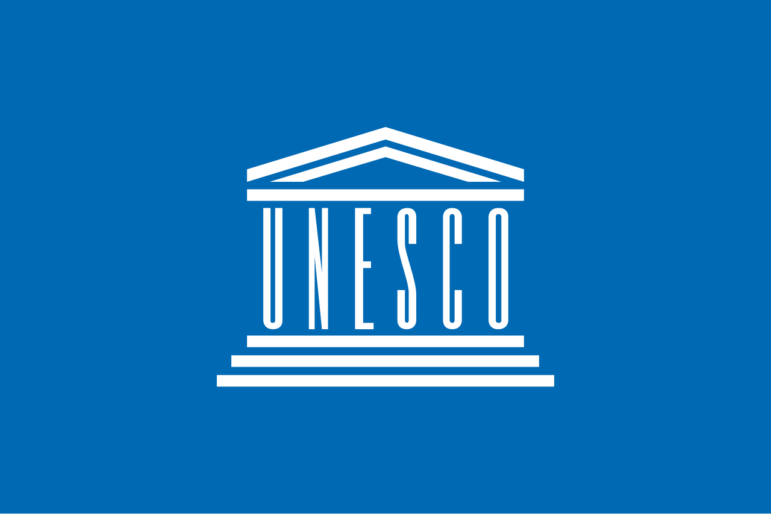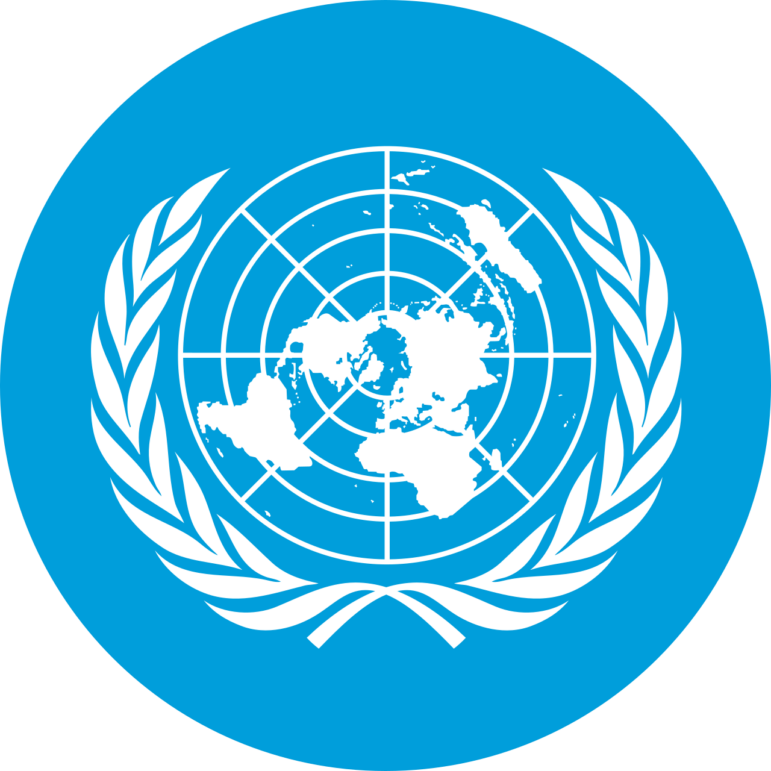VANCOUVER – Nearly 1,000 UNESCO Chair positions have been established across 120 countries, creating a global network dedicated to advancing education, science, culture, and human rights. Yet, despite this vast reach, fewer than 10 of these Chairs have explicitly focused on the rights, knowledge systems, and lived experiences of Indigenous peoples. That’s beginning to change.
UNESCO—short for the United Nations Educational, Scientific and Cultural Organization—is a specialized UN agency founded in 1945 and headquartered in Paris. Its mission is to promote peace, intercultural dialogue, and sustainable development by fostering inclusive education, protecting cultural heritage, advancing scientific cooperation, and safeguarding freedom of expression. Through its UNESCO Chairs Programme, the organization links higher education institutions worldwide to build capacity, drive research, and bridge knowledge systems—especially those long excluded from global discourse.

Flag of the United Nations Educational, Scientific and Cultural Organization (UNESCO) [Public Domain
The new appointment firmly places Indigenous knowledge governance at the center of this global platform. Dr. Amy Parent (Sigidimnak Nox̱s Ts’aawit) of the Nisga’a Nation in British Columbia and Dr. Sonajharia Minz of the Oraon Tribal Peoples in India have been jointly named co-chairs of the newly launched UNESCO Chair in Transforming Indigenous Knowledge Research Governance and Rematriation. The Chair is hosted at Simon Fraser University in Vancouver in collaboration with Jawaharlal Nehru University in New Delhi.
The appointment marks a milestone in UNESCO’s efforts to elevate Indigenous voices, not only in academia but in international policymaking and global sustainability efforts. Parent and Minz’s work focuses on strengthening Indigenous rights to data sovereignty, combating language loss, and reimagining research through Indigenous-led, gender-inclusive, and technologically advanced approaches.
“I see this UNESCO Chair as a catalyzing opportunity to help hold the door open,” Parent said. “It’s a new diplomatic channel for Indigenous rights holders to engage international institutions and governance systems in support of our self-determination, while fostering a shared research space for collective learning, relationship-building, and inspiration with each other.”
Climate change has made this work more urgent. Of the world’s 7,000 languages, more than half are at risk of extinction—a threat accelerated by extreme weather events, forced migration, and the loss of knowledge holders. Rising sea levels, heatwaves, and storms are displacing Indigenous communities, disrupting the intergenerational transmission of language, culture, and ecological wisdom. At the same time, traditional knowledge—often preserved through language—is increasingly recognized as key to environmental resilience and sustainable development.
“It is still far too uncommon to see Indigenous women leading international initiatives like this,” Parent emphasized. “Dr. Sonajharia Minz and I carry this joint appointment not only with deep honour, but with a profound sense of responsibility — to our Nations, our Ancestors, and the generations to come.”
Parent and Minz plan to use the Chair as a platform to bring Indigenous matriarchal values and knowledge systems into global academic and policy spaces. “This announcement is about more than just a title — it’s about inviting others to dream with us,” Parent said. “We want Indigenous matriarchs, Knowledge Keepers, youth, rightsholders, and communities to know that this Chair is for all of us.”

United Nations Emblem [Public Domain
A defining element of the Chair is its embrace of rematriation—a term Parent advocates in place of the more commonly used “repatriation.” In an interview with Grist, she explained, “Repatriation is really still about patriarchal authority. It’s still about reinforcing colonial logics, laws, and practices. Rematriation has other dimensions, but most certainly it has to do with the restoring of our matriarchal authority within our own communities that’s been impacted by colonialism.”
Parent continued: “Rematriation represents a balancing of all the roles in our communities—with our men, with two-spirit and gender-diverse people, with our children, our elders, our matriarchs, our chiefs. It’s about trying to bring that balance back that’s been disrupted. And so, for me, it’s also a process of healing, restoring, and reclaiming what was really never given up.”
The concept of Indigenous Knowledge Research Governance (IKRG) is central to the Chair’s work. IKRG refers to Indigenous-led policies, protocols, and ethical frameworks for conducting research in and with Indigenous communities. It centers Indigenous ways of knowing, emphasizes accountability to communities, and resists extractive research practices rooted in colonial paradigms. The Chair also advances gender-sensitive approaches to challenge systemic violence and ensure that Indigenous women, two-spirit, and gender-diverse people are not left out of decision-making processes.
Over their four-year term, the co-chairs will build relationships with Indigenous communities, support the return of cultural belongings, co-develop policies for language revitalization, and advance Indigenous-governed digital infrastructure. Their work will also inform emerging ethical frameworks for artificial intelligence and data sovereignty rooted in Indigenous protocols.
Parent underscores that Indigenous languages cannot be separated from the land. A single word—such as X̱maay—can carry generations of ecological knowledge, legal principles, and cultural practices. Revitalizing Indigenous languages, she explains, is not merely about preserving a means of communication; it is about reawakening deeply rooted relational systems passed down through time.
When Indigenous languages disappear, so do the intergenerational signals, our original forms of “climate science”—that have guided our relationships with the natural world. But when we honor, revitalize, and sustain Indigenous knowledge systems, we restore these living connections and the teachings that nurture not only our ways of life, but the healing and renewal of Mother Earth herself.
“Time is running out,” emphasized Minz. “We are on the brink of losing Indigenous languages around the world, and language is more than a mere communication tool. Indigenous languages are a repository of culture, knowledge, and knowledge systems. They are awaiting urgent attention for revitalization, which means that we are all endowed with the responsibility to preserve these worldviews for our future generations.”
The Wild Hunt is not responsible for links to external content.
To join a conversation on this post:
Visit our The Wild Hunt subreddit! Point your favorite browser to https://www.reddit.com/r/The_Wild_Hunt_News/, then click “JOIN”. Make sure to click the bell, too, to be notified of new articles posted to our subreddit.